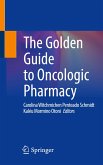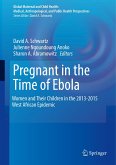In response to the complexity involved in treating leukemia during pregnancy, and the need to find the most efficient treatment possible without harming the fetus, this book offers essential guidelines for institutions and practitioners alike.
Pursuing a comprehensive approach, the book addresses a broad range of subjects, including: pregnancy and its characteristics; staging, pathology, morbidity and what to expect in each type of leukemia; chemotherapy for leukemia in pregnant women with complete trials; dose adjustment of chemotherapy for leukemia in pregnancy based on serum dosages; and pharmacokinetics and pharmacodynamics for this unique group of patients. In turn, subsequent chapters focus on protecting the fetus and neonatal management regarding chemotherapy for leukemia in pregnancy, including the treatment and risks for the fetus (for each type of leukemia), intrathecal therapy and its effects on the fetus; supportive drugs, antibiotics and antifungals for pregnantpatients during chemotherapy, including intervention and dose adjustments; palliative care for women with leukemia in pregnancy; breastfeeding during treatment for leukemia; pharmacological aspects of supplements, vitamins and nutrition in pregnancy during leukemia treatment; and more.
Combining contributions from highly qualified hematology professionals, who have pooled their knowledge to address the treatment of virtually every aspect of leukemia in pregnancy, the book is aimed at a complete pharmacological treatment, including guidelines and trials. It is a must-have not only for institutions providing care for hematology patients, but also for residency programs, research institutions, and professionals in areas that involve leukemia treatment for pregnant women - e.g. hematology, neonatology, obstetrics clinics, intensive medicine and critical care units.
Pursuing a comprehensive approach, the book addresses a broad range of subjects, including: pregnancy and its characteristics; staging, pathology, morbidity and what to expect in each type of leukemia; chemotherapy for leukemia in pregnant women with complete trials; dose adjustment of chemotherapy for leukemia in pregnancy based on serum dosages; and pharmacokinetics and pharmacodynamics for this unique group of patients. In turn, subsequent chapters focus on protecting the fetus and neonatal management regarding chemotherapy for leukemia in pregnancy, including the treatment and risks for the fetus (for each type of leukemia), intrathecal therapy and its effects on the fetus; supportive drugs, antibiotics and antifungals for pregnantpatients during chemotherapy, including intervention and dose adjustments; palliative care for women with leukemia in pregnancy; breastfeeding during treatment for leukemia; pharmacological aspects of supplements, vitamins and nutrition in pregnancy during leukemia treatment; and more.
Combining contributions from highly qualified hematology professionals, who have pooled their knowledge to address the treatment of virtually every aspect of leukemia in pregnancy, the book is aimed at a complete pharmacological treatment, including guidelines and trials. It is a must-have not only for institutions providing care for hematology patients, but also for residency programs, research institutions, and professionals in areas that involve leukemia treatment for pregnant women - e.g. hematology, neonatology, obstetrics clinics, intensive medicine and critical care units.








